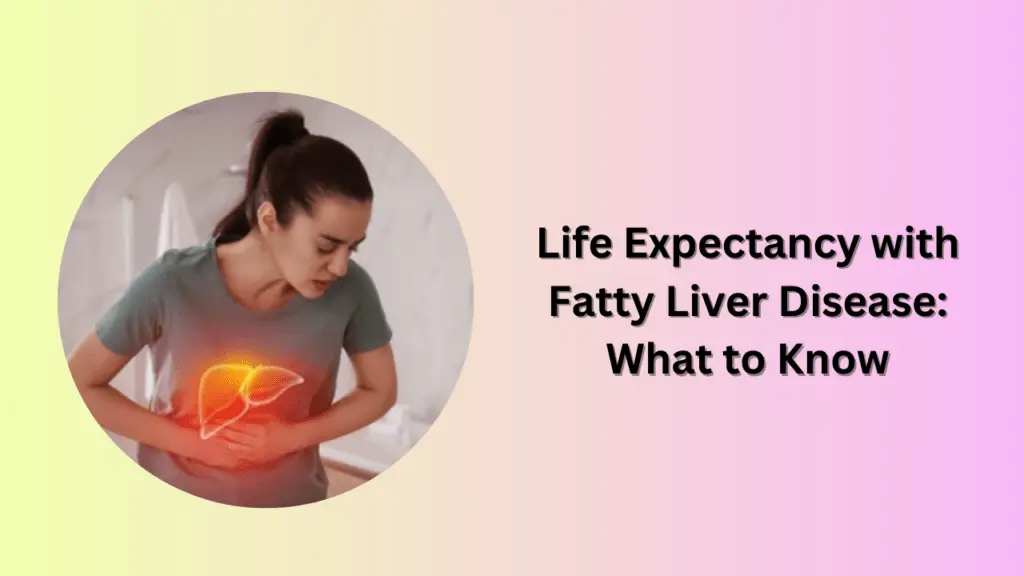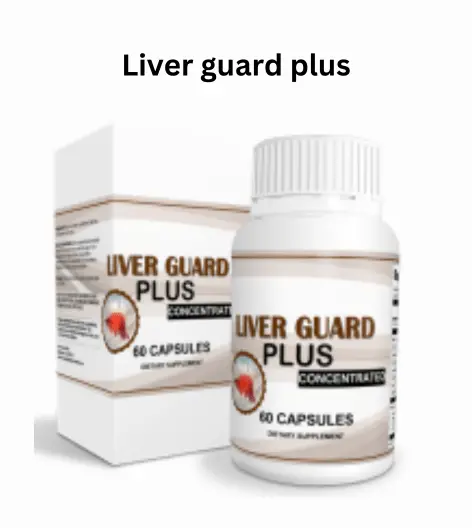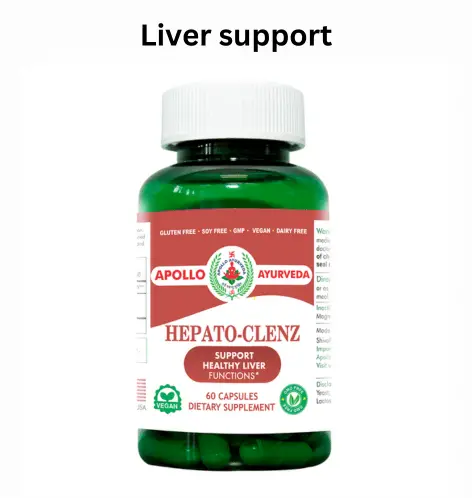Table of Contents
ToggleIntroduction
Imagine sitting in a doctor’s office, hearing the words “fatty liver disease” for the first time. Your mind races with questions – what does this mean for your health? How will it impact your life expectancy? The journey ahead may seem daunting, but with knowledge and understanding, you can navigate this path with confidence. In this article, we will delve into the intricacies of life expectancy with fatty liver disease, shedding light on important aspects that can empower you to make informed decisions for your well-being.
Understanding Fatty Liver Disease
When the liver accumulates excess fat, it is known as fatty liver disease or hepatic steatosis. There are two main types of fatty liver disease: non-alcoholic fatty liver disease (NAFLD) and alcoholic fatty liver disease (AFLD). NAFLD is commonly linked to metabolic factors such as obesity, diabetes, and high cholesterol, while AFLD is a result of excessive alcohol consumption.
Liver guard plus
- Comprеhеnsivе Livеr Support: A blеnd of natural ingrеdiеnts for ovеrall livеr hеalth.
- Enhancеd Livеr Dеtox: Hеlps rid your body of toxins and pollutants.
- Boostеd Mеtabolism: Supports еfficiеnt nutriеnt procеssing and wеight managеmеnt.
- Antioxidant Protеction: Fights oxidativе strеss and rеducеs inflammation.
- Easy-to-Takе Capsulеs: Hasslе-frее daily supplеmеnt.
Impact on Life Expectancy
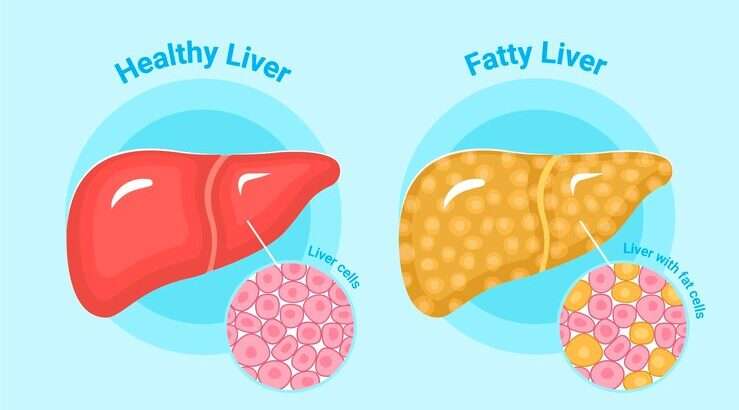
Determining the impact of fatty liver disease on life expectancy is a complex issue that varies from individual to individual. Factors such as the progression of the disease, the presence of other health conditions, lifestyle choices, and adherence to treatment play crucial roles in determining outcomes.
Disease Progression
In the early stages, fatty liver disease may be asymptomatic, making it challenging to detect. However, as the disease advances, it can lead to serious complications such as liver fibrosis, cirrhosis, and even liver cancer. The progression of fatty liver disease can significantly affect life expectancy, highlighting the importance of early diagnosis and proactive management.
Hepato-Clenz
- Hepato-Clenz: Your Natural Liver Cleanse & Detox Solution!
- Powerful blend of Turmeric and Black Pepper for optimal liver support.
- Equivalent to 5000mg of this potent blend per serving.
- All-natural, safe, and non-GMO formula.
- Gluten-free and proudly made in the USA.
- Convenient 60 veg capsules per bottle.
Support your liver’s natural detox process.
Comorbidities and Lifestyle Factors
Individuals with fatty liver disease often have other underlying health conditions such as diabetes, cardiovascular disease, and obesity. These comorbidities can further impact life expectancy by increasing the risk of complications and reducing overall health outcomes. Additionally, lifestyle factors such as diet, exercise, and alcohol consumption play a crucial role in the prognosis of fatty liver disease.
Treatment and Management
Effective management of fatty liver disease is key to improving outcomes and potentially extending life expectancy. Treatment strategies focus on lifestyle modifications, such as weight loss, dietary changes, regular exercise, and abstinence from alcohol. In some cases, medications may be prescribed to manage underlying conditions and prevent disease progression.
Symptoms of fatty liver disease

Symptoms of fatty liver disease include:
- Fatty liver disease often has no symptoms.
- When it does, symptoms may include fatigue, malaise, and pain or discomfort in the upper right belly area.
- Possible symptoms of NASH and cirrhosis, or severe scarring, include itchy skin, abdominal swelling, shortness of breath, swelling of the legs, spider-like blood vessels just beneath the skin’s surface, red palms, enlarged spleen, and yellowing of the skin and eyes.
- Liver cancer and end-stage liver failure are possible complications of severe scarring.
Natural remedies for fatty liver

Natural remedies for fatty liver disease include lifestyle changes and certain herbal remedies. Here are some key points.
Lifestyle Changes
- Maintaining a healthy body weight, exercising regularly, and limiting alcohol consumption are crucial for preventing and managing fatty liver disease.
- Losing weight through a gradual process and following a healthy diet, like the Mediterranean diet, can help reduce liver fat and improve symptoms of NAFLD.
- Avoiding high sugar intake, consuming foods with a low glycemic index, and adding omega-3 fatty acids to the diet can be beneficial.
Herbal Remedies
- Herbal remedies like aloe vera gel and kutki root have been suggested to enhance liver function and help reverse fatty liver disease. However, it’s important to consult a healthcare provider before using these remedies.
- Turmeric, apple cider vinegar, and lemon juice are also mentioned as effective natural remedies for fatty liver disease.
Supplements
- Vitamin E supplements have shown potential in reducing inflammation caused by NAFLD, but it’s essential to consult a doctor before taking them, especially for individuals with serious liver scarring or type 2 diabetes.
Coffee
- Caffeinated coffee has been linked to potential benefits for the liver, such as reducing the risk of liver diseases like NAFLD and slowing scar tissue growth. However, it’s important to discuss the benefits of coffee with a healthcare provider.
Navigating the Journey
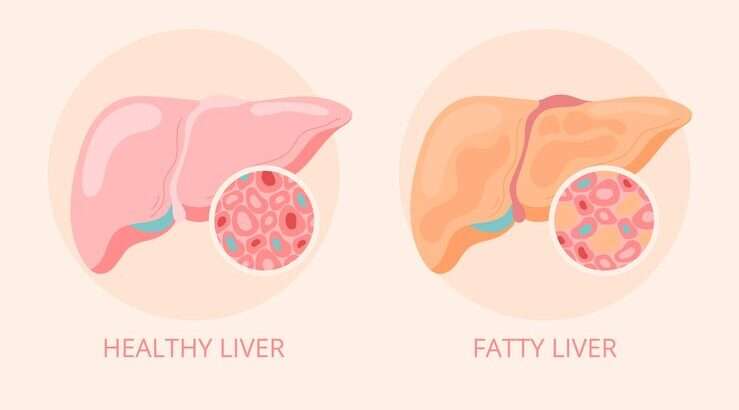
Living with fatty liver disease can be challenging, but with the right approach and support, individuals can enhance their quality of life and potentially improve life expectancy. These tips will help you navigate this journey.
Education and Awareness
Empower yourself with knowledge about fatty liver disease, its causes, risk factors, and treatment options. Stay informed by seeking information from reliable sources, discussing concerns with healthcare providers, and connecting with support groups or online communities.
Healthy Lifestyle Choices
Adopting a healthy lifestyle can have a profound impact on managing fatty liver disease and improving overall well-being. Make sure to have a well-balanced diet that includes fruits, vegetables, whole grains, and lean proteins. Incorporate regular exercise into your routine and prioritize good sleep habits.
Regular Monitoring
Regular monitoring of liver function through blood tests, imaging studies, and clinical evaluations is vital in tracking disease progression and response to treatment. Stay proactive in scheduling follow-up appointments with your healthcare team and addressing any concerns promptly.
Emotional Support
Living with a chronic condition like fatty liver disease can take a toll on mental and emotional well-being. Seek support from loved ones, counselors, or mental health professionals to address feelings of anxiety, stress, or depression. Remember, you are not alone in this journey.
Takeaway Message
In conclusion, understanding the impact of fatty liver disease on life expectancy is crucial for individuals diagnosed with this condition. By prioritizing education, healthy lifestyle choices, regular monitoring, and emotional support, you can proactively manage fatty liver disease and potentially improve outcomes. Remember, each person’s journey is unique, and with the right tools and resources, you can navigate the path ahead with resilience and hope.
As you start this journey, keep in mind that knowledge is a powerful tool. Arm yourself with information, seek support when needed, and take proactive steps towards better liver health. Your well-being is worth investing in, and with determination and perseverance, you can lead a fulfilling life despite the challenges of fatty liver disease.
Life Expectancy with Fatty Liver Disease
Frequently Asked Questions
Q: What is the average life expectancy for individuals with fatty liver disease?
The life expectancy for individuals with fatty liver disease can vary greatly depending on factors such as the severity of the disease, the presence of complications, and management strategies. In some cases, lifestyle modifications and proper medical care can help improve life expectancy.
Q: How does fatty liver disease affect life expectancy?
A: Fatty liver disease can impact life expectancy by increasing the risk of developing complications such as liver cirrhosis, liver failure, and liver cancer. However, early detection, proper treatment, and adopting a healthy lifestyle can mitigate these risks and potentially improve life expectancy.
Q: Can lifestyle changes improve life expectancy for individuals with fatty liver disease?
A: Yes, adopting a healthy lifestyle can positively impact life expectancy for individuals with fatty liver disease. This includes maintaining a balanced diet, achieving and maintaining a healthy weight, avoiding excessive alcohol consumption, and engaging in regular physical activity. These lifestyle changes can help reduce the progression of fatty liver disease and decrease the risk of complications.
Q: What medical treatments are available to improve life expectancy for individuals with fatty liver disease?
A: Medical treatments for fatty liver disease aim to manage underlying conditions such as obesity, diabetes, and high cholesterol, which can contribute to the progression of the disease. Symptoms can be managed by medication in some instances. Additionally, regular monitoring and follow-up with healthcare providers are essential for managing fatty liver disease and optimizing life expectancy.
Q: Are there specific risk factors that can influence life expectancy in individuals with fatty liver disease?
A: Yes, several risk factors can influence life expectancy in individuals with fatty liver disease, including the presence of comorbidities such as diabetes, hypertension, and cardiovascular disease. Other factors such as the severity of liver damage, lifestyle choices, and adherence to treatment plans can also impact life expectancy. Regular medical evaluations and discussions with healthcare providers can help identify and address these risk factors effectively.
